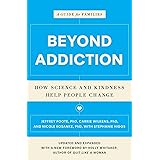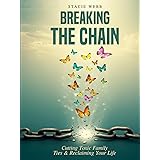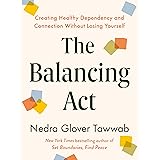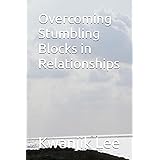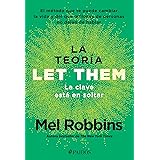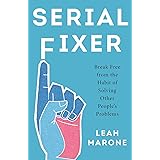The holiday season, often painted with hues of warmth and joy, can paradoxically usher in a tempest of stress for many. As thoughtfully discussed in the accompanying video, the anticipation of Black Friday, Cyber Monday, and Christmas frequently manifests as a tangible sense of dread rather than festive cheer. For individuals accustomed to a predictable routine, the sudden influx of social obligations, financial pressures, and the perennial quest for the ‘perfect gift’ can feel akin to navigating a turbulent sea in a small rowboat. It is a period where the traditional calm of personal life often yields to a storm of consumer expectations, where the pursuit of holiday magic is frequently overshadowed by the very real threat of holiday shopping anxiety.
The underlying mechanism of this seasonal stress is often attributed to the phenomenon of dopamine-fueled shopping, a concept where the anticipation and acquisition of new items trigger a potent neurochemical reward. While this provides fleeting pleasure, the aggregate effect during peak shopping seasons can be one of exhaustion and regret, particularly when overspending is involved. The objective is not to eschew the act of giving but rather to recalibrate the approach, transforming a potentially overwhelming obligation into a manageable and even enjoyable endeavor. This requires a strategic mindset, one that prioritizes proactive planning and mindful engagement over reactive panic.
Navigating the Retail Labyrinth: Strategic Planning as Your Compass
Effective holiday gift procurement is not merely an act of consumption; it is an exercise in logistical prowess and emotional intelligence. A common pitfall for shoppers is the unprepared plunge into the retail fray, an approach that inevitably leads to decision fatigue and impulse acquisitions. As highlighted in the video, a foundational step in mitigating holiday shopping anxiety involves meticulous planning, an often-underestimated tool in the modern consumer’s arsenal.
Cultivating a Comprehensive Gift List and Budget
Before any item is considered for purchase, a robust inventory of recipients is advised. This list, far beyond a simple roster of names, should serve as a dynamic blueprint for gift-giving. For each individual, consideration of their preferences, needs, and previous gift history is paramount. Simultaneously, the establishment of a stringent budget for each gift is not merely a financial constraint; it functions as a cognitive anchor, preventing the insidious drift into unwarranted expenditure. This proactive allocation of resources ensures that the financial strain, a significant contributor to holiday stress, is contained and understood upfront. The discipline of budgeting, in this context, becomes a liberating force, allowing for focused and intentional shopping rather than reactive spending.
The act of allocating specific shopping times within one’s calendar should also be considered integral to this planning phase. These dedicated slots act as boundaries, preventing shopping endeavors from encroaching upon other essential life domains and contributing to an overall sense of being overwhelmed. This structured approach, where shopping is compartmentalized and approached with a clear objective, is a hallmark of effective stress management during periods of high demand.
The Digital Frontier: Embracing Online Retail for Serenity
The traditional brick-and-mortar shopping experience, while possessing a certain nostalgic charm, is frequently associated with stressors such as dense crowds, protracted queues, and the perpetual search for parking. For those whose stress response is triggered by such environmental stimuli, the digital marketplace offers a compelling sanctuary. The video aptly points out that a significant alleviation of holiday shopping anxiety can be achieved through the strategic utilization of online platforms.
Unlocking Convenience and Value in E-commerce
Online shopping transcends mere convenience; it represents a paradigm shift in how consumer needs are met. The sheer breadth of product availability, often surpassing that of physical stores, combined with the ease of price comparison, empowers consumers to make informed decisions without succumbing to the pressures of an immediate purchase. Many digital retailers, particularly during peak seasons, extend incentives such as advantageous pricing, promotional codes, and complimentary shipping services, thereby enhancing the overall value proposition.
Furthermore, the logistical advantages of online procurement are considerable. The ability to have gifts directly dispatched to recipients, often accompanied by gift-wrapping services, streamlines the entire process, removing the need for intermediary handling and subsequent shipping arrangements. This outsourcing of logistical burdens significantly reduces the cognitive load on the shopper, allowing for a more relaxed and efficient completion of holiday obligations. The anonymity of online transactions also serves to mitigate the social anxieties that can arise in crowded retail environments, providing a more controlled and less stimulating shopping experience.
The Imperative of Self-Care: Preserving Well-being Amidst the Bustle
The relentless pace of the holiday season, compounded by the demands of gift acquisition, can extract a substantial toll on an individual’s mental and physical reserves. The video’s emphasis on taking breaks and prioritizing self-care is not merely a suggestion but a critical directive for maintaining psychological equilibrium. In the fervent pursuit of the ‘perfect present,’ the true essence of the holidays—connection, reflection, and rejuvenation—is often inadvertently overshadowed.
Mitigating Decision Fatigue and Reclaiming Perspective
Shopping, particularly when faced with an abundance of choice, is a cognitively demanding activity that can lead to decision fatigue. Prolonged exposure to advertising, product comparisons, and price fluctuations can deplete mental resources, making subsequent decisions more arduous and increasing susceptibility to stress. Regular, intentional breaks are thus not a luxury but a strategic necessity. Stepping away from screens, engaging in physical activity, or simply allowing a period of quiet reflection can help to reset the cognitive state, offering a renewed perspective on the tasks at hand.
The broader message here, often lost in the transactional nature of holiday commerce, is the reaffirmation of intrinsic values. The holidays, at their core, are intended to be a celebration of relationships and shared experiences, a stark contrast to the often superficial pursuit of material goods. Remembering this fundamental truth allows for a re-evaluation of priorities, shifting the focus from external pressures to internal well-being. A small investment in self-care, whether it be a quiet cup of tea or a brief walk outdoors, can yield disproportionately positive returns in terms of emotional resilience and a reduced propensity for holiday shopping anxiety.



